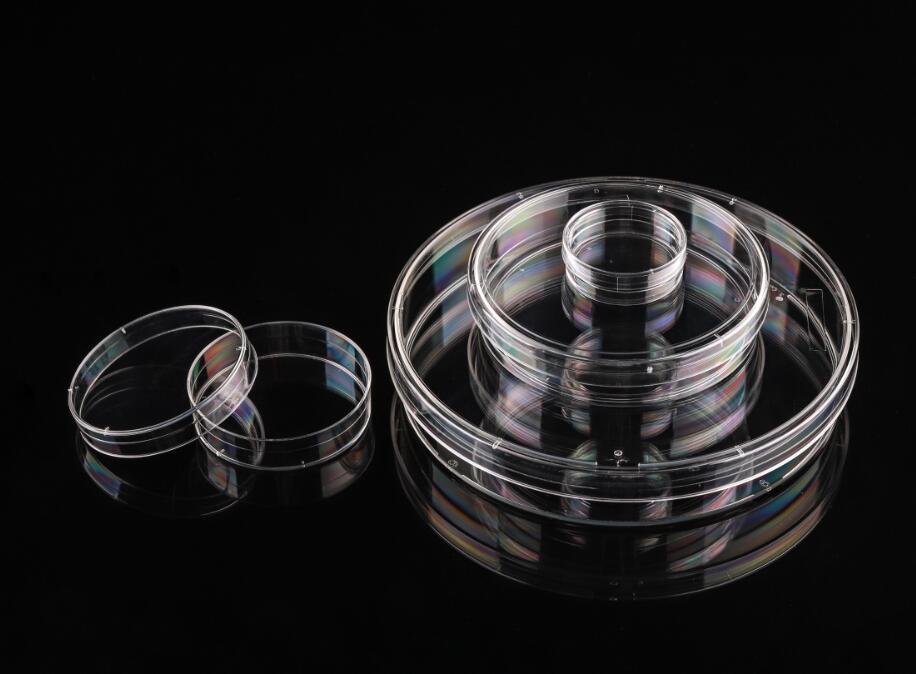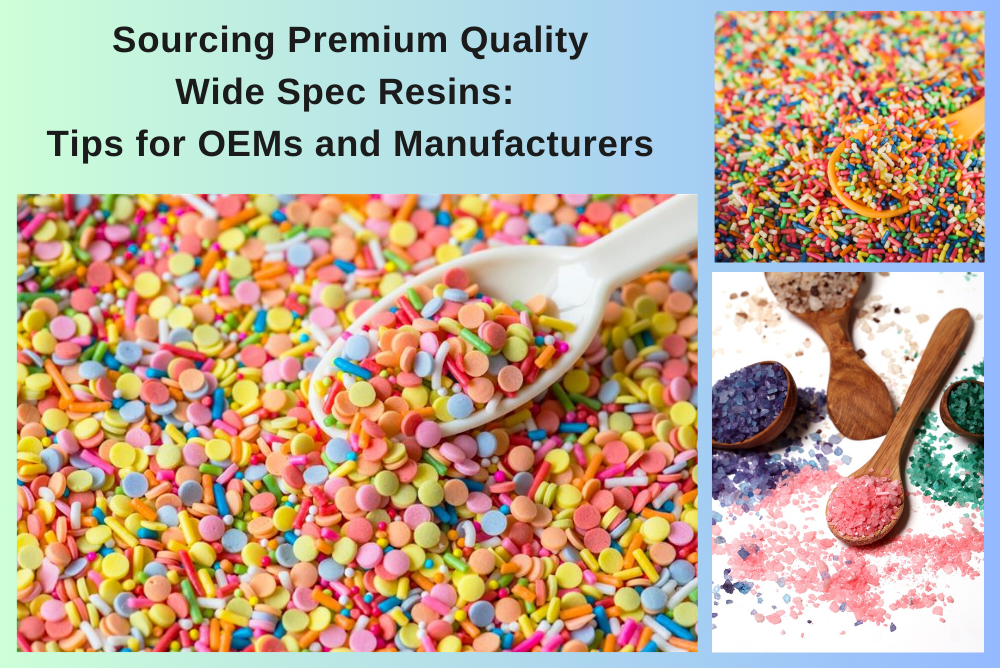Wide spec or off-spec resins are byproducts of the virgin plastic polymerization process that fall outside the standard specifications. These materials do not meet the requirements for primary plastic products and are typically purchased by wide spec resin suppliers, resin compounders, and other buyers. They may have been damaged due to heat exposure or other factors, leading to altered physical and chemical properties. Despite these changes, wide spec resins can still be used in various applications. Plastic resin suppliers often sell these resins to OEMs at a lower price than standard virgin plastics. This article explores the types, properties, and applications of wide spec resins.
What Are Wide Spec Resins?
Also known as off-grade resins, wide spec resins have broader specifications than what is normally required. Depending on changes in properties like color, mechanical strength, density, and more, they can be classified as either good or bad wide spec resins. Visually, they might appear different from the desired color, such as being pale or caramelized. Since these resins are a byproduct of virgin resin production, they don't require extra time or cost for manufacturing and processing.
Types, Properties, and Applications of Wide Spec Resins
Although off-grade resins aren't clearly defined, their properties can vary slightly from standard ones depending on the type—such as ABS, acrylic, polycarbonate, polypropylene, polyurethane, and others. Here’s an overview of some common properties and possible variations that make them wide spec:
- ABS
- Standard Properties: Acrylonitrile Butadiene Styrene (ABS) is an amorphous thermoplastic made from three monomers: acrylonitrile, butadiene, and styrene. It offers high impact resistance, making it durable and structurally stable. It can be easily welded and formed using machines like CNC and 3D printers. It also has good electrical insulation properties and can withstand a wide temperature range.
- Wide Spec: Some ABS resins may be considered wide spec due to changes in color, density, structural integrity, or improper blending with other thermoplastics.
- Applications: Used in computer peripherals, vehicle interiors, device enclosures, Lego toys, and sockets.
- Acrylic
- Standard Properties: Acrylic is known for its excellent transparency and optical properties, making it a lightweight alternative to glass in certain applications. It has higher impact resistance than regular glass and is cost-effective. It can be precisely machined and has good tensile strength. It can operate within a temperature range of -40°C to 80°C and has a relative density of 1.19 g/cm³.
- Wide Spec: Wide spec acrylic may show some opacity or altered tensile strength depending on how it was processed. Its density might also differ.
- Applications: Commonly used in partitions, manifolds, lenses, furniture, and LCD screens. Opaque wide spec acrylic may not be suitable for transparent applications like lenses.
- Polycarbonate
- Standard Properties: Polycarbonate (PC) is made through the polymerization of bisphenol A and phosgene. It's widely used across industries due to its strength, impact resistance, and transparency. It's lightweight, durable, and can be designed to block UV rays. It’s easy to machine, melt, and mold into desired shapes. PC has good electrical properties and provides structural and dimensional stability.
- Wide Spec: Wide spec PC may not follow the exact formulation of bisphenol A and phosgene, resulting in variations in mechanical strength, density, and transparency.
- Applications: Used in kitchen jars, cups, sippers, and containers.
- Polypropylene
- Standard Properties: Polypropylene (PP) is a hard polyolefin with low density and good heat resistance. It’s produced by polymerizing propene monomers and is highly versatile. It can be formulated to be hard, soft, opaque, or transparent. Its density ranges between 0.8 and 0.9 g/cm³, depending on the type.
- Wide Spec: Variations in chain structure during polymerization can lead to wide spec PP, which may differ in heat resistance and hardness compared to standard PP.
- Applications: Used in consumer goods, films, and packaging across multiple industries.
- Polyurethane
- Standard Properties: Polyurethane (PU) is flexible and durable, with rubber-like properties. It has a high elongation break point and good load-bearing capacity. It can withstand low temperatures and abrasion, and its molecular structure varies significantly.
- Wide Spec: The molecular structure may sometimes be out of specification, leading to differences from standard PU.
- Applications: Widely used in seals, gaskets, tubing, wheels, rollers, wires, cables, and sporting goods.
How to Choose the Right Wide Spec Resin?
Selecting the right wide spec resin depends largely on your application needs. Here are some tips to help you make the best choice:
- Analyze your project requirements and operating environment, and compare them with the properties of available polymers.
- If the resin meets your needs, consider using it or having it customized. Wide spec resins are usually more cost-effective than standard ones.
- Ensure the material is safe and doesn’t emit toxic substances.
- Wide spec resins may have altered colors. Confirm if the change is acceptable for your use case.
- Consider the texture or surface finish you need and check if the material meets those standards.
- If your application involves food, healthcare, or similar fields, verify that the resin meets certifications like FDA, RoHS, REACH, and NSF.
If you're an OEM producing large volumes of plastic parts, you may need specific types of wide spec resins. Ensure you source high-quality wide spec resins with optimal physical and chemical properties for your application. It's also important to work with reliable suppliers who can tailor solutions to your needs. Mid Continent Plastics is a leading supplier of engineering plastics, specializing in wide spec resin distribution. With over thirty years of experience, the company caters to a wide range of volume requirements.

Cell Culture Dishes
NEST cell culture dishes are ideal for all types of culturing where microscopic examination is required. Numeric indicators on the bottom of each plate allow users to identify the location of cells.
Features:
• High clarity, 100% virgin polystyrene.
• Flat transparent surface for distortion-free observation.
• Vacuum plasma TC treatment, excellent cell adherence.
• Stackable for easy storage and handling.
• Sterilized by E-beam, SAL=10^-6.
• Non-Pyrogenic, DNase/Rnase free.

Cell Culture Dishes,Lab Supplies Cell Culture Dish,Glass Bottom Cell Culture Dish,Cell Culture Dish
Wuxi NEST Biotechnology Co.,Ltd , https://www.nest-biotech.com


